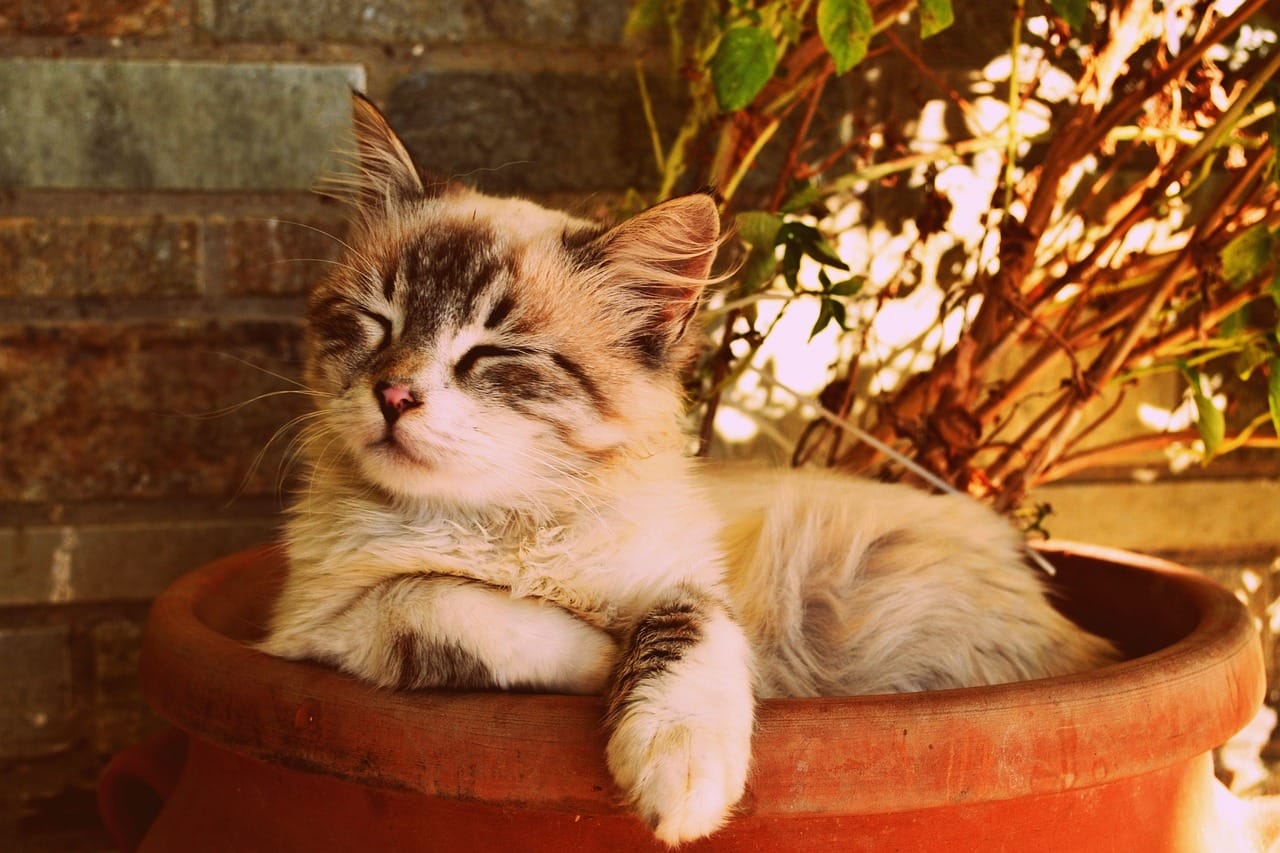Can fleas kill kittens? Learn the dangers of fleas on kittens, discover symptoms, and find effective kitten flea treatment options. Protect your tiny pet!
Can Fleas Kill Kittens? A Comprehensive Guide to Flea Infestations in Kittens
The innocent fluffball you welcomed into your home can be susceptible to various health threats, and fleas are a significant one. While many pet owners are aware of the discomfort fleas cause, the question, Can Fleas Kill Kittens?, is a crucial one that deserves a detailed answer. The short answer is yes, although it’s not always a direct cause of death. However, the severe complications that arise from a flea infestation can be fatal, especially for young and vulnerable kittens.
Understanding the Dangers: Fleas on Kittens Symptoms
Before diving into the lethal possibilities, let’s examine the common fleas on kittens symptoms. Recognizing these signs early is crucial for timely intervention and preventing serious health issues. Kittens with fleas often exhibit excessive scratching and biting, leading to irritated skin and hair loss. You may notice small, dark specks (flea dirt) in their fur. These are flea excrement and contain digested blood. Some kittens might show signs of anemia due to significant blood loss from numerous flea bites. This anemia can manifest as lethargy, pale gums, and weakness. In severe cases, kittens might also experience skin infections due to constant scratching, breaking the skin barrier.
Beyond the visible symptoms, fleas can transmit diseases. While rare, flea bites can sometimes transmit tapeworms. A kitten infected with tapeworms can become malnourished and fail to thrive, making them more susceptible to other illnesses. If you notice your kitten excessively licking or biting its rear end, or passing unusual segments of worms in its stool, consult a vet immediately. This could also be connected to other behaviors like those explored in our article on “Why do cats hiss at kittens?” https://themonstercat.com/why-do-cats-hiss-at-kittens/
Can Fleas Kill Kittens? The Severity of Flea Infestations
Can fleas kill kittens? The answer is a qualified yes. While a few fleas won’t directly kill a healthy kitten, a severe infestation can lead to serious complications, ultimately causing death. The most significant risk is anemia. Constant blood loss from numerous flea bites weakens the kitten, leaving it vulnerable to other illnesses. Infections, whether secondary skin infections from scratching or transmitted diseases, can exacerbate the situation, making a full recovery difficult. A severely anemic and weakened kitten might succumb to the combined stress of the flea infestation and the accompanying secondary illnesses.
Furthermore, young kittens have weaker immune systems than adult cats. This makes them less resilient to the effects of a flea infestation and more prone to serious complications. A seemingly minor infestation can quickly escalate into a life-threatening situation for a young kitten. This is unlike the situations described in “Will male cats kill kittens?”, https://themonstercat.com/will-male-cats-kill-kittens/ where the threat is more direct and immediate.
Flea Allergy Dermatitis: A Common Complication
Another significant danger posed by fleas is flea allergy dermatitis (FAD). This allergic reaction to flea saliva can cause intense itching, inflammation, and skin lesions, even with just a few flea bites. Kittens with FAD often scratch themselves relentlessly, leading to secondary bacterial infections, hair loss, and painful skin sores. The constant scratching and discomfort can lead to weight loss, lethargy, and ultimately, weaken the kitten’s overall health making it vulnerable to other illnesses. Severe cases of FAD can require extensive veterinary care, including medications and specialized treatments.
Preventing Flea Infestations: Kitten Flea Treatment
Prevention is always better than cure when it comes to flea infestations. Implementing effective kitten flea treatment strategies is essential to protecting your kitten. Regular grooming is crucial. Brushing your kitten’s fur daily helps remove fleas, flea dirt, and eggs, reducing the overall infestation. A good quality flea comb can be invaluable in removing adult fleas. You should also regularly wash your kitten’s bedding in hot water to kill any fleas that may have dropped off. The American Society for the Prevention of Cruelty to Animals (ASPCA) offers excellent resources on flea control for cats, which can be found here: https://www.aspca.org/pet-care/cat-care/flea-and-tick-prevention-cats
In addition to grooming, you should consult your veterinarian about appropriate flea preventative medications for kittens. There are various options available, including topical treatments, oral medications, and collars, each with its own set of advantages and disadvantages. Your vet can help you choose the best option based on your kitten’s age, health, and specific needs. Remember to always follow the instructions carefully and never use adult cat flea medication on a kitten.
Identifying and Treating a Flea Infestation
Early detection is key to effective treatment. Regularly check your kitten for fleas by parting its fur and looking for adult fleas, flea dirt, or signs of irritation. If you suspect a flea infestation, consult your veterinarian immediately. They can accurately diagnose the extent of the infestation and recommend the appropriate treatment plan. Ignoring a flea infestation can allow it to escalate rapidly, leading to serious health consequences for your kitten. This is significantly more important than addressing issues like those in our piece on “How to get kitten to stop biting,” https://themonstercat.com/how-to-get-kitten-to-stop-biting/ which, while important, doesn’t pose the same life-threatening risk.
Treatment often involves a combination of approaches. Your vet might recommend a topical flea medication, an oral medication, or a flea collar. Environmental treatment is also critical. Thorough cleaning of your home, including vacuuming carpets and upholstery, washing bedding, and treating affected areas with a flea spray, is essential to break the flea life cycle and prevent re-infestation. The Cornell University College of Veterinary Medicine offers further information on parasitic infestations in cats.
The Role of Parental Care: A Kitten’s Vulnerability
It’s important to note that a kitten’s environment significantly impacts its vulnerability to fleas. A mother cat usually meticulously grooms her kittens, helping to keep them clean and free of parasites. However, if the mother cat is infested with fleas, she could inadvertently transfer the infestation to her kittens. This is also true if the kitten is orphaned or separated from its mother too early. In such situations, the kitten is even more susceptible to flea infestations and their serious consequences. Understanding the potential issues related to maternal care, as discussed in articles such as “Do cats eat their kittens?” https://themonstercat.com/do-cats-eat-their-kittens/ and “Do male cats eat kittens?” https://themonstercat.com/do-male-cats-eat-kittens/, is crucial in ensuring a kitten’s well-being.
Long-Term Effects of Untreated Flea Infestations
The long-term consequences of leaving a flea infestation untreated can be severe. Chronic anemia can lead to developmental problems, weakened immunity, and increased susceptibility to other illnesses. Untreated FAD can result in permanent scarring, hair loss, and chronic skin problems. In some cases, the stress from a persistent flea infestation can negatively affect the kitten’s overall development and long-term health. Addressing these issues promptly is crucial to the kitten’s overall well-being and longevity.
Conclusion: Protecting Your Kitten from Fleas
In conclusion, while fleas themselves might not always directly kill kittens, the severe health complications they cause can be fatal. Recognizing fleas on kittens symptoms early, implementing preventative kitten flea treatment strategies, and seeking prompt veterinary care when necessary are essential steps in ensuring the health and well-being of your beloved kitten. Regular grooming, a clean environment, and appropriate preventative medications are your best defenses against this potentially life-threatening pest.
Share your experiences with flea infestations in kittens in the comments below! Let’s learn from each other and help keep our furry friends safe and healthy.

Frequently Asked Questions: Can Fleas Kill Kittens?
- Can fleas kill kittens?
- Yes, fleas can kill kittens, especially very young or weak ones. Severe infestations lead to anemia (due to blood loss) and potential death. Early intervention with kitten flea treatment is crucial.
- What are the symptoms of fleas on kittens?
- Symptoms of fleas on kittens include intense itching, scratching, hair loss, pale gums (anemia), restlessness, and skin irritation. You might also see flea dirt (dark specks) in their fur. If you see any of these fleas on kittens symptoms, act quickly.
- How do fleas affect kittens?
- Fleas feed on a kitten’s blood, causing anemia if the infestation is severe. They can also transmit diseases and cause skin allergies. The constant itching and scratching can lead to secondary skin infections.
- What is the best kitten flea treatment?
- Always consult your veterinarian for the best kitten flea treatment. They can recommend age-appropriate products, like topical treatments or oral medications, that are safe for your kitten’s age and health.
- Are flea collars safe for kittens?
- Some flea collars are safe for kittens, but it’s crucial to choose one specifically designed for kittens and follow the manufacturer’s instructions carefully. Always consult your vet before using a flea collar.
- How can I prevent fleas on my kitten?
- Regular grooming, keeping your home clean, using flea preventative medications as recommended by your vet, and treating your other pets are all crucial in preventing fleas. Maintaining a clean environment is key.
- My kitten is scratching excessively. Could it be fleas?
- Excessive scratching is a common symptom of fleas on kittens. However, other skin conditions can also cause scratching. A vet visit is necessary to determine the cause and get the right treatment.
- How quickly can fleas kill a kitten?
- It depends on the severity of the infestation and the kitten’s overall health. A massive infestation can lead to anemia and death within days or weeks. Immediate kitten flea treatment is essential.
- What home remedies can I use for fleas on my kitten?
- While some home remedies are suggested, it is not recommended to rely on them solely. They may not be effective and may even harm your kitten. Always consult your veterinarian for safe and effective kitten flea treatment.
- My kitten is lethargic and weak. Could fleas be the cause?
- Lethargy and weakness are serious symptoms that could indicate a severe flea infestation leading to anemia. Seek immediate veterinary attention if your kitten shows these symptoms. This is a crucial point regarding can fleas kill kittens.

Can Fleas Kill Kittens? A Guide for Concerned Owners
Fleas are a serious threat to kittens, posing a significant risk to their health and even their lives. Unlike adult cats who can usually tolerate a flea infestation, kittens are much more vulnerable due to their smaller size and underdeveloped immune systems. A heavy flea infestation can lead to anemia, a condition where the blood doesn’t have enough red blood cells to carry oxygen throughout the body. This can cause weakness, lethargy, and even death if left untreated. Kittens can also develop flea allergy dermatitis, a severe skin irritation that causes intense itching and hair loss.
One of the major ways fleas impact kittens is through blood loss. While a few fleas might not seem like a big deal, a large infestation can result in significant blood loss, especially for a tiny kitten. This is exacerbated if the mother cat isn’t providing adequate nutrition or if the kitten is already unwell. It’s crucial to remember that even if you don’t see many fleas, a significant problem might be developing underneath the surface. Regular grooming and flea prevention are vital.
Beyond anemia, fleas can transmit diseases. While not all fleas carry diseases, some can spread tapeworms, which can further weaken a kitten’s already compromised health. If you notice your kitten scratching excessively, losing hair, or exhibiting signs of illness (lethargy, loss of appetite), it’s crucial to seek veterinary attention immediately. Don’t wait for symptoms to worsen.
Preventing flea infestations is key. Regularly cleaning your kitten’s environment, using flea preventative medications (as prescribed by your vet), and maintaining a clean home are all essential steps. Remember to treat all pets in the household, as fleas can easily jump between animals. If you’re concerned about a mother cat’s behavior, and wonder if a mother cat might harm her kittens, perhaps due to stress or illness, you might find this article helpful: Do Cats Eat Their Kittens?
Sometimes, a kitten’s behavior can be misinterpreted as a sign of illness. For example, excessive biting might be due to teething or playful nipping. If you’re struggling with a biting kitten, you may find some helpful advice here: How to Get Kitten to Stop Biting. It’s important to distinguish between normal kitten behavior and signs of illness or distress caused by fleas.
Understanding cat behavior is crucial, particularly if you have a male cat. Concerns about male cats and kittens sometimes arise. If you’re worried about potential aggression, you might find this article informative: Will Male Cats Kill Kittens? Similar concerns might lead you to ask, Do Male Cats Eat Kittens? Understanding these dynamics is important for preventing potential problems.
Finally, if your cat is exhibiting unusual behavior towards her kittens, such as hissing, it could indicate stress or underlying issues. Learn more about this behavior by reading: Why Do Cats Hiss at Kittens?. Addressing these issues can help create a healthier environment for your kittens, reducing stress and the likelihood of flea infestations going unchecked.
In conclusion, while fleas themselves might not directly kill a kitten, the severe anemia and secondary infections they can cause can be fatal. Early detection, prevention, and veterinary care are crucial for ensuring your kitten’s health and well-being.

Can Fleas Kill Kittens, kitten flea treatment, fleas on kittens symptoms